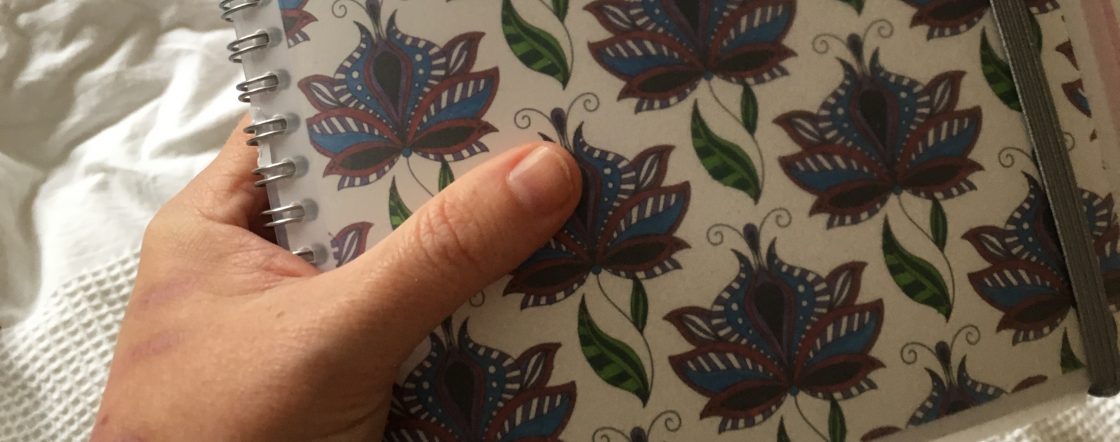First published on MadCovid, 19 June 2020
Throughout the years I’ve been under mental health services, I’ve been through many courses of therapy.
None of them have proven particularly helpful, and nor did I expect them to. I firmly believe that my mental illness is down to screwy brain chemicals and not some deeply repressed past trauma (spoiler: I don’t have any, and have always felt I’ve disappointed my therapists by not having a ‘Eureka!’ moment).
But therapy, I’ve found, is used as a bargaining chip by secondary services. ‘Engage with it, otherwise we won’t help you.’
And so, just before lockdown stopped the world, I ended up agreeing to yet another course of therapy, under duress. My psychiatrist had written those accusatory words in my notes – ‘has not engaged with therapy’ – conveniently ignoring the 12 recent-ish months I spent having weekly one-to-one ACT sessions.
This latest round of therapy – four weeks of crisis management – was forced on me almost by stealth.
I’d managed to get my psychiatrist to remove the BPD diagnosis from my notes, after two other psychs – one private, one working in the NHS day patient unit where I was being treated – refuted it entirely.
But when I agreed to (another) psychology assessment, it transpired that I was being directed down the PD pathway.
I was NOT impressed, but to get them off my back, I agreed to do this short, DBT-based crisis management course.
It was supposed to be a group course, but Covid changed all that. Instead, I was told, I’d be given one-to-one sessions via video call.
Now, I don’t like video calling at the best of times, so this development didn’t thrill me. I find it too intense – conversation doesn’t flow in the same way, body language and silent cues are impossible to read, and I find myself spending all my time trying to avoid looking at my ugly face.
I don’t like group therapy, either (spotting a theme here?) but at least in that situation I can hide in the background: more confident people can take the lead, and there’s less pressure to be the one with all the answers.
Yesterday, I had the third of four crisis management sessions, and I hated it. Their value, for me, has decreased steadily: week one was quite useful, week two was a bit rubbish, and yesterday was awful.
I won’t go into all the details, but the focus was on self-harm and how to prevent it, and the assumptions of why and how people self-harm were completely irrelevant to me.
The therapist was adamant that all self-harm is spontaneous and impulsive, whereas I’m a meticulous planner and always know exactly when, where and how I’m going to do it.
So, the content of yesterday’s session rather missed the point – and I guess it showed. It was rather like being in the Mastermind chair and forgetting everything about your specialist subject.
I found it impossible to give the answers the therapist wanted. I didn’t agree with her theory (or the DBT theory) of why people self-harm. I didn’t identify with the thoughts she assumed were in my head. And I couldn’t provide her with the list of pros, cons and protective factors that she wanted.
Besides, I haven’t self-harmed for several weeks, and it was really not something I wanted to be talking about.
So yes, I was disengaged. I didn’t mean to be rude, but clearly that was how it came across, as the therapist said, in a chastening tone, ‘I get the feeling you don’t think this is helpful.’
Nail: head.
The problem is I’m a people pleaser, a teacher’s pet, and a perfectionist. I hate feeling that I’ve upset someone or that they’re disappointed in me. And so I found myself back-pedalling at speed, enthusing about how great these strategies would be and how they’d undoubtedly save me from self-harm.
In non-Covid times, this wouldn’t have happened. I’d have been doing the sessions in a group, and letting others do the talking when I had nothing to say. When asked for my thoughts, I’d have felt more able to be honest, knowing that someone else would likely be feeling the same.
But with nowhere to hide on a video call, I’m left feeling both guilty and inadequate, and I can already tell that in next week’s session, I’ll feel obliged to make up for this week’s shortcomings. I’ll feel compelled to tick the ‘very good’ boxes on the post-therapy feedback questionnaire.
I’m pretty sure this isn’t the point of therapy.
Still, I’ve proven that I can and will engage, even in the excruciatingly intensity of Zoom counselling. I’ve been a good girl, and no one can say I haven’t tried.
Until the next time they decide that because I’ve not been scrutinised by a psychologist for, ooh, about 12 months, and therefore it must be time to force me to ‘engage’ again.
The next time, though, I won’t. What’s the point? Wouldn’t that coveted therapy slot be better used by someone who might actually find it helpful?
If they kick me out of services, so be it, but I’m done with therapy – especially Covid-friendly Zoom therapy.
Tried it, hated it – and for my own wellbeing, I’m not going there again.
